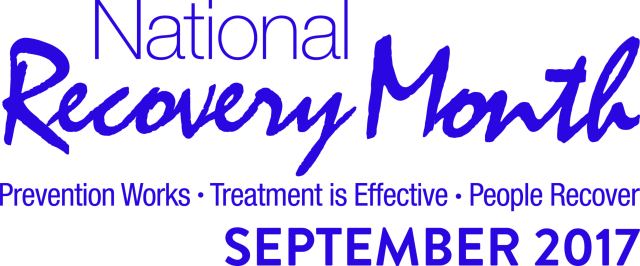 September is National Recovery Month and it’s is a good time to talk about mental illness and substance use disorders with the hope that every time we talk about them, a little more of the stigma associated with them disappears. We also want to invite everyone to join us this Friday, Sept. 1, at 12:30 p.m. at the Idaho State Capitol for our 2nd Annual Recovery Month Awards and Proclamation celebration, where you will hear from some of the Idaho voices for recovery.
September is National Recovery Month and it’s is a good time to talk about mental illness and substance use disorders with the hope that every time we talk about them, a little more of the stigma associated with them disappears. We also want to invite everyone to join us this Friday, Sept. 1, at 12:30 p.m. at the Idaho State Capitol for our 2nd Annual Recovery Month Awards and Proclamation celebration, where you will hear from some of the Idaho voices for recovery.
Recovery seems sort of vague. What does that mean, exactly? How do we know if someone is in “recovery”?
Recovery is an ongoing process that includes a person’s entire mental well-being, and how well they can function on a daily basis. That ability can be affected by mental illness as well as substance abuse. Recovery doesn’t happen overnight and it’s not guaranteed that someone in recovery will stay in recovery. But that stigma I mentioned earlier is an obstacle.
 How do we help diminish that?
How do we help diminish that?
Simply put, by being willing to talk about it without judgment. Mental illness and substance use disorders are not issues that happen to other people. They happen to us, whether it’s literally ourselves or a family member or a loved one, the impact reverberates. People don’t feel comfortable asking for help, they won’t get it until they are in crisis. And then treatment is more difficult.
How do we know if someone is suffering from a mental illness or a substance use disorder? Are there general symptoms we should watch for?
Sure – some of those for mental health include confused thinking or a reduced ability to concentrate, excessive fears or worries, extreme mood changes, delusions, paranoia or hallucinations, the inability to cope with daily problems, major changes in eating habits and extreme feelings of guilt, among others. Symptoms for substance use disorders include secretive or suspicious behaviors, getting into trouble often, a drop in attendance at work or school, a sudden change in friends or hobbies, and some physical changes like sudden weight loss or gain and a deterioration of a person’s physical appearance. And, please, if you or someone you know is struggling and possibly suicidal, call the Idaho Suicide Prevention Hotline at 1-208-398-HELP.
Where can people find more help?
Lots of links here on our DHW blog, and you can always call the Idaho Careline at 2-1-1 for resources and referrals. And please join us this Friday at 12:30 p.m. at the Statehouse to hear from Idahoans living in recovery and working to strengthen our families and communities!
A Closer Look at Your Health airs weekly Tuesday mornings at 6:50 a.m. on KBOI Newsradio 670 in Boise; this is an edited transcript from the Aug. 29 program.
Resources:
- Idaho Recovery Month 2017 activities and events
- National Recovery Month
- Find Substance Use Disorder Treatment in Idaho
